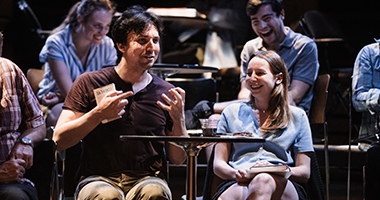
In consistent pursuit of excellence onstage and off, we encourage creativity and exploration, and go about our work with exceptional rigor, craft, and attention to detail.
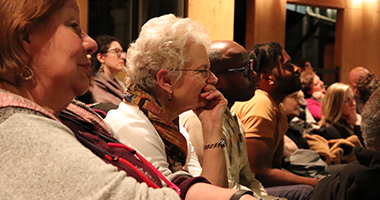
Embracing the differences that enrich our society and our art, we strive to cultivate a diverse workforce, audience, and repertoire, and to be an especially welcoming place for all.
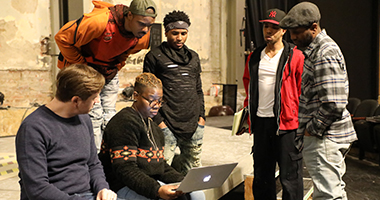
We foster a supportive workplace in which people collaborate with generosity and trust, nurture future arts leaders through exposure and mentorship, and encourage the professional and personal growth of those who work here.
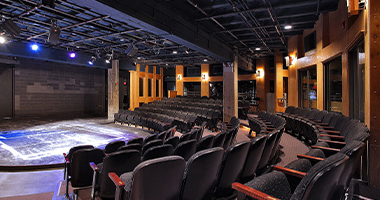
We use the theatre’s resources mindfully, investing in a vital future for our institution.
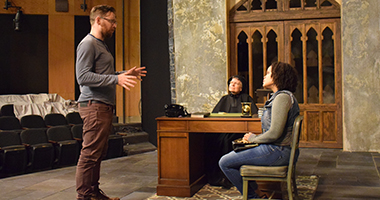
We take chances, challenge the status quo, and produce theatre that fearlessly interrogates the human experience.
We are a theatre whose work engages with provocative ideas and challenging content. We ask our artists to explore that content bravely and boldly, working in deep and meaningful collaboration with each other. And we strive to share our work with a truly wide audience, inviting them to contend with the past, reflect on the present, and envision the future.
The successful realization of our work requires that artists feel supported, that audiences feel truly welcome, and that staff work in an environment that affirms them actively. None of that is possible without an active and ongoing commitment to create a diverse, inclusive, and equitable community. We believe that being "not racist" doesn’t go far enough to achieve those ends—for our institution and field to flourish, we must be anti-racist and work proactively to dismantle barriers that have excluded people from joyful participation in our art form.
We recognize that this work is made more challenging by the fact that we are and have always been a predominately white institution, and that our previous efforts to promote equity have been spotty and insufficient. People, and our work, have suffered as a result. We thank those who have called on us, and the field, to do better, and we welcome any member of our community to call us into dialogue.
Our work in this area is by nature ongoing and will find specific form in policies and procedures that evolve over time. But we have committed to the following general principles that help guide our efforts, principles that we revisit regularly and share with everyone who comes to work with us.
As part of our commitment to being a welcoming, diverse, and inclusive workplace, we resolve to:
Be rigorous in our interrogation of ourselves—our policies, practices, culture, and personal behaviors.
Regularly engage in self-reflection, learning, and dialogue about race and racism.
Actively listen to our BIPOC colleagues and communities.
Embrace historically marginalized communities in our workforce, audience, and stakeholders.
Proactively recruit, hire, and welcome staff and artists from diverse backgrounds, and ensure that they have an opportunity to thrive at Studio and feel that they belong here.
Disrupt patterns, structures, and behaviors that reinforce racism and anti-Blackness.
Make our work accessible, affordable, and engaging to a truly broad community.
Develop a systematic approach to assessing and monitoring institutional progress in this area.
Maintain avenues for the reporting and remedy of discrimination and disrespect.
Continue this work even when it feels difficult or when other needs feel pressing.
On January 27, 2021, Studio released a response to a list of demands issued from the We See You, White American Theater collective to the theatre community at large. This call launched an effort at Studio to become an actively anti-racist theatre.
We will share updates here about our progress. It will take time, but we are committed to the work.
We have published a Land, Labor, and Legacy Acknowledgement, which will also be inscribed on the wall of our lobby for all audiences to see. Given the particular history of our neighborhood and city, our statement focuses on both Native peoples and on the contributions of Black Washingtonians to building and enriching our city and neighborhood. The statement was created with input from members of both the Native and Black communities.